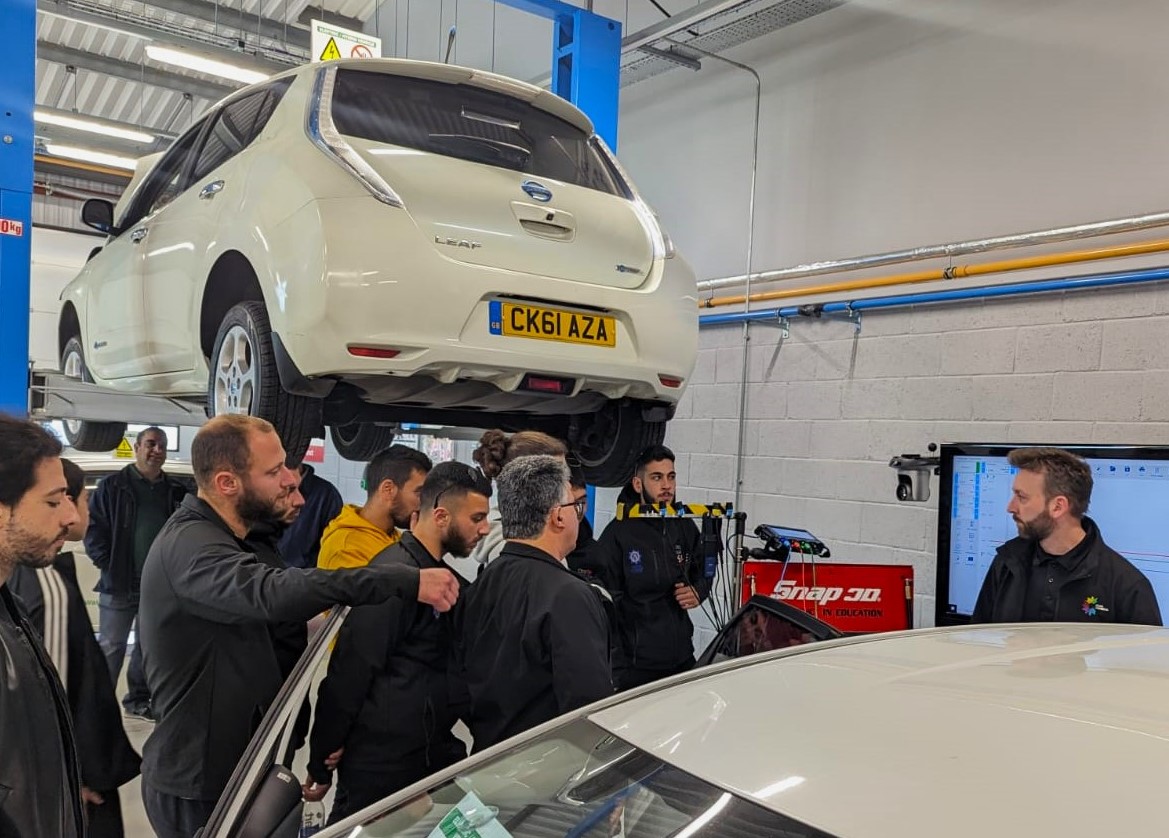STUDENTS powering through an innovative electric vehicle (EV) programme encouraged others to plug-in and join them to meet demand for thousands of technicians nationwide.
The Hybrid/Electric Vehicle Repair 2 and 3 qualifications at Coleg Cambria Deeside have been a huge success, with up to 100 learners completing courses in the past 18 months.
And now the college has unveiled a new Level 4 Award in Diagnosis and Rectification of Faults in Electric and Hybrid Vehicles, a more comprehensive qualification to be launched this September.
With a report by think-tank the Social Market Foundation (SMF) revealing Britain will run out of mechanics to service the increasing number of electric vehicles on its roads by the end of the decade, lecturer Charles Jones says it is pivotal mechanics and anyone wanting to join the automotive industry are up-to-speed with the latest technological developments.
“We are currently delivering the course twice a year and places are filling fast, so we urge anyone interested to get in touch,” he added.
“We have had positive feedback from past students who say it has made a big difference in their workplaces and given them a USP (unique selling point) in comparison to others in the sector who are yet to embrace EV, given they can support that growing customer base.
“There is a lot of flexibility because most people studying the course will already be in employment so they can roll in and roll off, and we have bolted EV/Hybrid modules on to our existing automotive engineering courses for apprentices and anyone wanting to do a more wide-ranging qualification on leaving school.
“A lot of our Level 3 learners want to move on to Level 4 and as electric and hybrid vehicles continue to develop, it is pivotal their skillsets do the same, to stay ahead of the curve and keep pace with these advances in technology, because electric vehicles are here to stay.”
Supported by local partners, Cambria has introduced new specialist tools, vehicles and machinery, and Level 4 cohorts will partake in more advanced service and repair processes, such as stripping down electric batteries, a more sustainable long-term alternative to simply replacing them, which is costly and less beneficial for the environment.
Carl Black, Curriculum Director for Engineering, Automotive and Electrical Technical at Deeside believes it is crucial more independent garages make the switch and bring through the next generation of EV technicians.
“It is already happening, and it’s not just garages who are sending people to us, we have had representatives from local authorities, utilities and transport companies and more,” he said.
“Personal Learning Account (PLA) funding is available, subject to eligibility, and given the unprecedented demand for skilled people to work on zero-emission transport – and the amazing facilities and expertise we have here – this is the place to be to further your career in this industry.”
The SMF study The SMF report highlights industry estimated that by 2027 there will not be enough qualified mechanics to maintain all of Britain’s EVs. By 2030, the country could face a shortfall of 25,000 qualified technicians.












